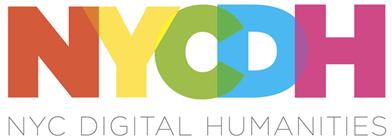The Dictionary Society of North America has partnered with local organizations in the New York City area to establish a series of meetups called MetroLex. MetroLex meetups bring together lexicographers, linguists, technologists, educators, and other language professionals to share research and projects relating to dictionary technology, dictionary use, language documentation, semantic ontologies, and lexicography.
Once again MetroLex will be held at Columbia University, hosted by associate professor of English and comparative literature John H. McWhorter. The theme of this session focuses on the lexicographical challenges of the transition from print to digital, with a consideration of what is lost and gained in the process. John Morse, former president and publisher of Merriam-Webster, will look at the rich supporting information, or “metadata,” found in a dictionary’s traditional work galleys, much of which (like handwriting and date stamps) can be lost as publishers move to all-digital authoring systems. Angus Grieve-Smith, a corpus linguist, will consider what happened when lexicographers for France’s equivalent of the Oxford English Dictionary, the Trésor de la Langue Française, first incorporated digitized texts but based their corpus on the authority of literary critics, providing an inadequate picture of the French language.
The event is free and open to the public — you don’t have to be a lexicographer to attend! More information on our speakers follows below.
John Morse, “The Metadata of a Work Galley: A Guided Tour Through a Dictionary’s Offline Information”
John is the former President and Publisher of Merriam-Webster Inc., holding those titles until his retirement last year. He joined Merriam-Webster in 1980. As Manager of Editorial Operations and Planning beginning in 1983, and as Executive Editor in 1991, he was responsible for all product-development operations. He became Publisher in 1996, widening his responsibilities to include all company operations, and was named President and Publisher in 1997. He was actively involved in the company’s editorial process, including the creation of Merriam-Webster’s Collegiate Dictionary, Eleventh Edition in 2003 and Merriam-Webster’s Advanced Learner’s English Dictionary, a dictionary for people learning English as a second or foreign language, in 2008. He is a strong advocate for cross-media development and has written and spoken widely about the evolution of reference books in print and online formats. He is a graduate of Haverford College and holds a Masters of Arts degree in English Language and Literature from the University of Chicago.
Angus Grieve-Smith, “The Challenge of Representativeness in the 1971 Trésor de la Langue Française Dictionary”
Angus is a linguist and programmer. After teaching French and Linguistics at Hofstra University and Saint John’s University in New York and creating an early prototype sign language synthesis application at the University of New Mexico, he is currently developing teaching and learning tools for Columbia University. His research has covered the history of negation in French and fights over transgender terminology. He is currently compiling the Digital Parisian Stage Corpus, a representative corpus of nineteenth-century French theatrical texts, available on GitHub.
The presentations will be followed by discussion and light refreshments provided by Oxford University Press.
If you can join us, please register using the Eventbrite link so we can know how many will be attending:
https://www.eventbrite.com/e/metrolex-digitization-and-its-discontents-tickets-37535636098
